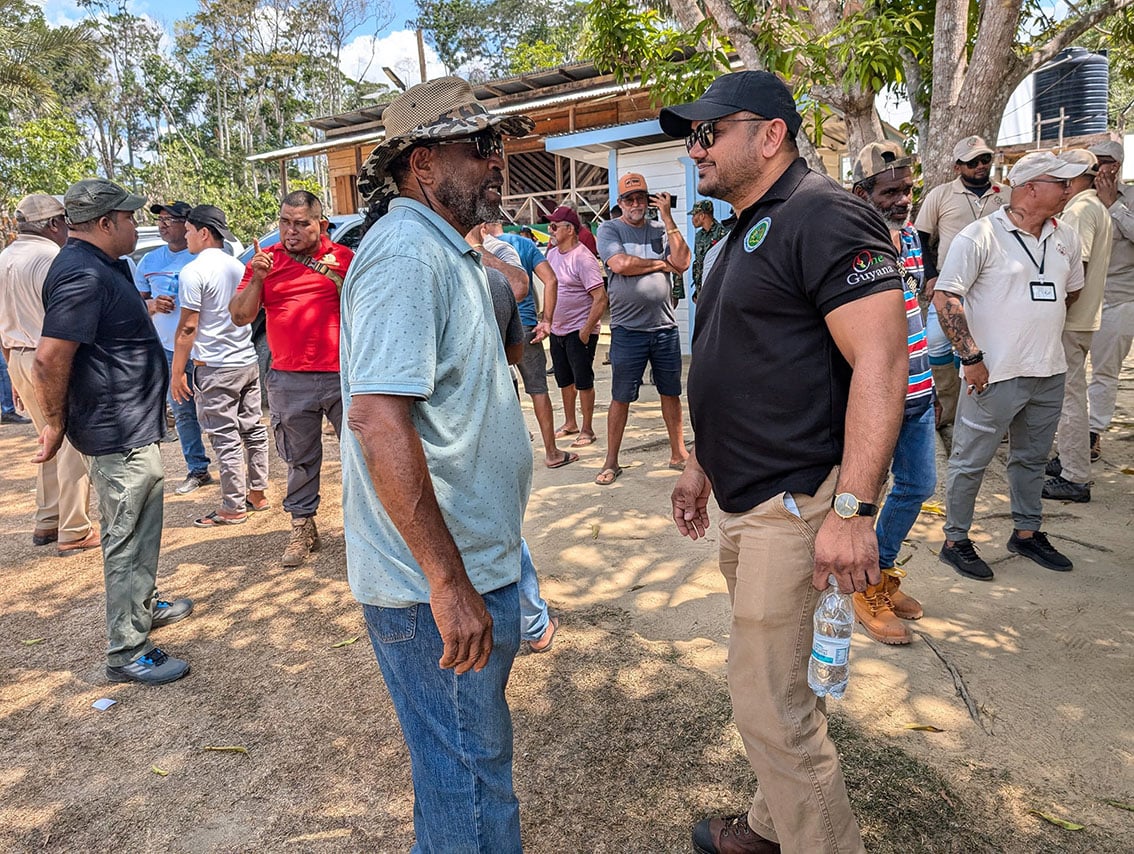-says hundreds of Brazilian prospectors invited into area
The Wapichan Wiizi Women’s Movement yesterday expressed deep concern over mining activities in Wapichan wiizi, especially at Marudi Mountain in Region Nine.
“We endorse and echo the statement released by the SRDC (South Rupununi District Council) on November 5 calling on the government to immediately suspend mining operations in the Marudi area. We call for mining to halt until our rights as Indigenous women, including our right to free, prior, and informed consent (FPIC), are upheld”, a statement from the group said yesterday.
They said that they were concerned that mining operators and the government had failed to involve them while making crucial decisions that affect their lands, safety, culture and environment.
The statement said that mining at Marudi Mountain, which is a sacred site for the Wapichan people, is happening through an agreement between the Rupununi Miners Association (RMA), the government, and the Aurous mining company. The women’s group said that they were never consulted about and never had the chance to participate in this agreement and this is a clear violation of our right to FPIC.
Since the agreement was signed, the women’s group contended that the RMA has invited hundreds of Brazilians to mine at Marudi, without any regulation or oversight.
“We believe many are miners from Yanomami territory, who have come here after being evicted from Brazil by President Lula. There is no transparency about what is happening at Marudi. We do not receive information about operators, their permits, or their practices. It is not clear who holds the permits to pursue mining operations, nor whether the miners are following any of the restrictions and regulations set forth by the GGMC and the EPA. We call on the government to demonstrate transparency by sharing the details of mining operations, the names of the permit holders, and all documents that the operators have submitted to the EPA and the GGMC”, the women’s group urged.
The group contended that the recent rise in unregulated mining, especially at Marudi, has brought large numbers of outsiders and a surge in violent crime in the area.
“There have been incidents of stabbing, robbery, and assault of villagers. Most recently, multiple individuals — including two Wapichan men — were taken hostage at Bush Mouth by a heavily armed group believed to be Brazilian nationals. We also believe that the intrusion of large numbers of unauthorized miners has increased the illegal trade of guns and drugs, as well as gold smuggling. We have also observed the presence of prostitution in the area. As Wapichan women we find ourselves facing an atmosphere of fear where our lives and safety are at risk. Our peaceful communities are no longer safe”, the group added.
Pollution of waters
The group asserted that waters around Marudi are being poisoned by the byproducts of mining.
“We know that mercury is being used. As Wapichan people we rely upon our waters to drink, fish, grow our crops, and other traditional practices. Our use of these resources is rooted in the practices of our ancestors. As women, we and our children are often most directly impacted by the pollution of our environment. When miners damage the creeks, the forests and the mountains, we suffer”, the group argued.
Noting that the dry season is currently in effect, the group said that the wet season will soon arrive.
“We believe it is likely that the toxic chemicals that are stored up in the mines will wash into our rivers, contaminating our ecosystems. Water pollution affects not only our villages near Marudi but also further North, including in areas that have an ecotourism industry. The government promotes ecotourism, but does not seem to be making any effort to protect the ecosystem”, the women’s group posited.
They said that they had been told that mining will bring jobs and economic opportunity, but their communities are seeing little to no benefit from this mining on our customary lands.
“Men from our villages working in the mining areas are exploited. Mine operators are permitted to harm sacred land without regulation. Our people are not seeing the profits from this destruction, and mining is interfering with our ability to live in harmony with our customary lands and to pursue more sustainable livelihoods”, the women lamented.
“We call on mining operators to cease their wanton destruction. We call on the government to respect our rights, to enforce the law, and to share all mining details and all documentation submitted to the EPA and GGMC related to mining in our territory”, the statement from the group said.
The Escazú Agreement
They said that it is also important to note that Guyana is a party to the Escazú Agreement, a landmark regional treaty aimed at ensuring access to information, public participation, and justice in environmental matters across Latin America and the Caribbean.






